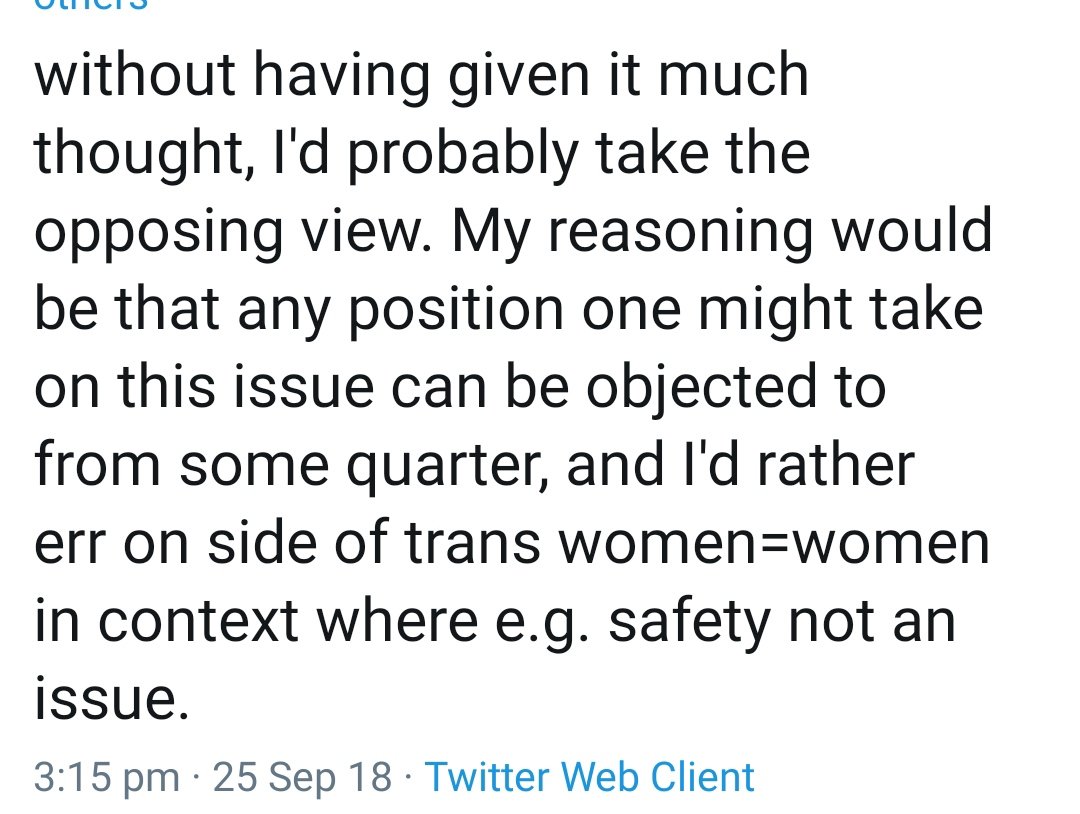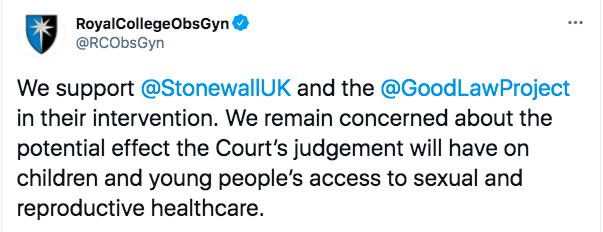
Can you imagine the drafting process of this weird statement?
"Let's put out a statement on the Tavistock v Bell appeal"
"But don't mention the case by name"
"What about children being prescribed puberty blockers and put on a path to sterilisation?"
"No don't mention that!"
"Let's put out a statement on the Tavistock v Bell appeal"
"But don't mention the case by name"
"What about children being prescribed puberty blockers and put on a path to sterilisation?"
"No don't mention that!"

"What about our tweet where we said we supported the intervention by Stonewall and the Good Law Project?"
"don't draw attention to that. Don't mention it. Just mention the other orgs"
"Um, the statement is a bit short now, and vague..."
"don't draw attention to that. Don't mention it. Just mention the other orgs"
"Um, the statement is a bit short now, and vague..."
"pad it out then, talk about other cases"
"Won't that look weird though? We haven't put out position statements on other cases?"
"You're right. Ok, just be vague there , and then add something else.... let's talk about our position on decriminalising abortion"
"Won't that look weird though? We haven't put out position statements on other cases?"
"You're right. Ok, just be vague there , and then add something else.... let's talk about our position on decriminalising abortion"
"How does that relate to this case?"
"It doesn't, but it allows us to suggest abortion rights are at risk and it was signed off by Council, it shows we have a decision process"
....
"Great, let's put that out"
"Shall we put someone's name on it?"
"Oh no, don't do that!"
"It doesn't, but it allows us to suggest abortion rights are at risk and it was signed off by Council, it shows we have a decision process"
....
"Great, let's put that out"
"Shall we put someone's name on it?"
"Oh no, don't do that!"
And this statement is supposed to make us feel more confident that the consent process for puberty blockers was robust, that medical professionals don't get caught up in obfuscation to cover their backs, that there is nothing extraordinary about what has gone on at the Tavistock.
• • •
Missing some Tweet in this thread? You can try to
force a refresh














